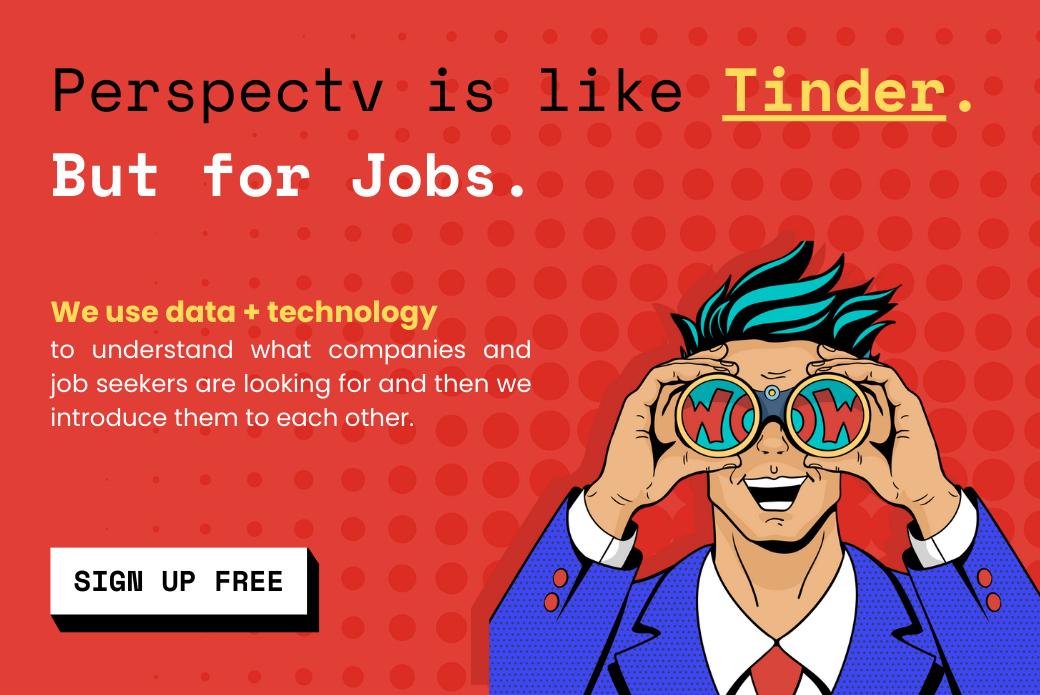How to Survive AI in the Workplace: A Guide for UK Businesses and Hiring Managers
How to Survive AI in the Workplace? Surviving AI in the workplace is a growing concern as technology evolves at a rapid pace. Here’s your ultimate guide on how to navigate this new landscape.
Will AI Take Yor Job: Essential Skills You Need
Artificial Intelligence is reshaping workspaces, bringing along innovative tools and automated processes. However, instead of viewing it as a threat, it’s time to embrace it as an opportunity. With the right approach, understanding, and adaptability, you can leverage AI to your advantage, enhance your productivity, and secure your place in the AI-driven future of work.
How Will AI Impact Jobs in the UK?
Artificial Intelligence (AI) is transforming industries across the UK, and its impact on jobs is a major concern for businesses and employees alike. While AI has the potential to automate routine tasks, it’s also creating new opportunities for jobs that require advanced skills in technology, data analysis, and AI management. For UK businesses, understanding how AI will affect different sectors is crucial. Some jobs may be displaced, but others will evolve, requiring new skill sets and adaptability.
Which Jobs Are Most at Risk of Being Replaced by AI?
As AI continues to advance, certain jobs are more susceptible to automation. According to a report by Goldman Sachs, the roles most at risk include:
- Office and Administrative Support: Routine tasks like data entry and scheduling are prime candidates for automation.
- Legal: AI can handle tasks such as contract review and legal research more efficiently than humans.
- Architecture and Engineering: While design work may still require human creativity, AI can take over more technical aspects.
- Life, Physical, and Social Science: Data analysis and predictive modeling are areas where AI excels.
- Business and Financial Operations: AI is increasingly used for tasks like financial analysis and reporting.
- Community and Social Service: Certain administrative functions in this sector may be automated.
- Management: AI can assist in decision-making processes, especially in data-driven management roles.
- Sales and Related: Automated systems are already handling aspects of sales, such as customer relationship management.
- Computer and Mathematical: While AI is creating new opportunities, it’s also capable of taking over some coding and data processing tasks.
- Farming, Fishing, and Forestry: Automation in agriculture is on the rise, with AI managing everything from crop monitoring to harvesting.
- Protective Service: AI-powered surveillance and security systems are starting to replace some human roles.
- Healthcare Practitioners and Technical: AI can assist with diagnostics and routine medical tasks, though human oversight remains crucial.
- Educational Instruction and Library: Certain educational tools and administrative functions are becoming increasingly automated.
- Healthcare Support: Routine tasks, like patient monitoring, can be automated, reducing the need for human support staff.
- Arts, Design, Entertainment, Sports, and Media: AI is beginning to take on tasks such as content creation and design, although human creativity still plays a key role.
These jobs are particularly vulnerable as they often involve repetitive, data-driven, or routine tasks that AI can efficiently handle.
What Strategies Can Businesses Use to Survive AI Disruption?
Surviving AI disruption requires proactive planning and a clear strategy. Businesses can start by assessing which tasks can be automated and which require human insight. Developing a culture of continuous learning is key—encourage employees to upskill and reskill to remain relevant. Additionally, integrating AI should be gradual and well-managed, ensuring that both technology and workforce are aligned. Emphasizing human-AI collaboration rather than competition can also help ease the transition and maintain morale.
How Can Managers Prepare Their Teams for AI Integration?
Managers play a crucial role in ensuring a smooth transition to an AI-driven workplace. Begin by communicating the benefits and challenges of AI integration to your team. Offer training sessions to familiarize employees with new AI tools and technologies. It’s important to involve your team in the process, seeking their input and addressing their concerns. This collaborative approach not only builds trust but also empowers employees to embrace AI as a tool that enhances their work rather than replacing them.
What Skills Will Be Important in an AI-Driven Workplace?
In an AI-driven workplace, certain skills will become increasingly valuable. Technical skills like programming, data analysis, and AI management are in high demand. However, soft skills such as creativity, critical thinking, and emotional intelligence will also be essential, as these are areas where humans excel over machines. Businesses should focus on cultivating a workforce that balances technical expertise with the ability to think strategically and solve complex problems.
How Can Businesses Use AI to Their Advantage Without Losing Jobs?
AI offers numerous benefits, from improving efficiency to driving innovation, but it also raises concerns about job displacement. To leverage AI without losing jobs, businesses can focus on using AI to augment human roles rather than replace them. For instance, AI can handle repetitive tasks, allowing employees to focus on higher-value activities that require creativity and human insight. Investing in employee training and development ensures that your workforce is prepared for the changes AI brings.
What Are the Risks of AI in the Workplace, and How Can They Be Managed?
AI in the workplace comes with risks, including ethical concerns, potential job loss, and the impact on employee morale. To manage these risks, businesses need to implement AI responsibly. This includes setting clear guidelines for AI use, ensuring transparency in AI decision-making, and maintaining a human-centric approach. Regularly reviewing AI systems for bias and fairness is also crucial to maintaining trust and avoiding unintended consequences.
How Can SMEs Compete with Larger Companies Using AI?
Small and medium-sized enterprises (SMEs) may feel at a disadvantage when it comes to implementing AI compared to larger corporations with more resources. However, SMEs can still compete by adopting scalable AI solutions that are tailored to their specific needs. Cloud-based AI tools, for instance, offer cost-effective ways to improve efficiency and decision-making. Additionally, SMEs can focus on niche areas where they have a competitive edge, using AI to enhance their unique value propositions.
What Are the Best AI Tools for Improving Workplace Efficiency?
There are several AI tools available that can significantly improve workplace efficiency. For example, AI-powered project management tools can streamline workflows and enhance team collaboration. Chatbots can handle customer service inquiries, freeing up human staff for more complex issues. AI-driven analytics platforms can provide deep insights into business performance, helping managers make data-driven decisions. Choosing the right AI tools depends on your business needs and goals, so it’s important to evaluate options carefully.
How Do AI and Automation Affect Employee Engagement?
AI and automation can have both positive and negative effects on employee engagement. On one hand, automating mundane tasks can increase job satisfaction by allowing employees to focus on more meaningful work. On the other hand, fears of job displacement can lead to anxiety and reduced morale. To mitigate these effects, businesses should focus on clear communication and involve employees in the AI implementation process. Ensuring that AI is used to enhance rather than replace human work can help maintain high levels of engagement.
What Are the Legal Implications of Using AI in the Workplace?
As AI becomes more integrated into business operations, understanding the legal implications is essential. Issues such as data privacy, intellectual property, and employment law need to be carefully considered. For instance, businesses must ensure that AI systems comply with data protection regulations like the GDPR. Additionally, the use of AI in hiring and performance evaluations should be free from bias and discrimination. Seeking legal advice and staying informed about AI-related legislation will help businesses navigate these complexities.
FAQs
How can businesses ensure AI doesn’t lead to job losses?
Businesses can prevent job losses by using AI to complement rather than replace human roles. This involves focusing on AI as a tool that enhances productivity, automates repetitive tasks, and allows employees to engage in more strategic and creative work. Investing in reskilling and upskilling employees will also prepare them for new roles in an AI-driven workplace.
What are the best practices for implementing AI in the workplace?
Best practices include starting with a clear strategy, involving employees in the AI implementation process, and providing ongoing training. It’s also important to choose AI tools that align with your business goals and to regularly review AI systems for bias and effectiveness. Maintaining transparency and clear communication with your team will help ensure a smooth transition.
How much does it cost to implement AI in a small business?
The cost of implementing AI can vary depending on the scale and complexity of the solution. For small businesses, cloud-based AI tools are often the most cost-effective option, with prices ranging from £100 to several thousand pounds per month, depending on the service. It’s important to consider the return on investment when evaluating AI solutions, as the long-term benefits often outweigh the initial costs.
What role will human workers play in an AI-driven future?
Human workers will continue to play a crucial role in areas that require creativity, critical thinking, and emotional intelligence—skills that AI currently cannot replicate. The future workplace will likely see a shift towards more strategic and innovative roles, with AI handling routine tasks. Preparing the workforce for this transition through continuous learning and development will be key to thriving in an AI-driven future.
Recent Data or Statistics
According to recent studies, the adoption of AI in UK workplaces is expected to increase significantly over the next few years. In fact, a report from PwC estimates that AI could contribute up to £232 billion to the UK economy by 2030. However, with this growth comes the challenge of workforce adaptation.
The demand for AI-related skills has surged by 60% over the past year, with a particular emphasis on roles in AI management, data analysis, and ethical AI oversight. These trends highlight the urgent need for businesses to not only adopt AI but also to invest in training and development to prepare their workforce for the future.
Related Article: Will AI Take My Job?





